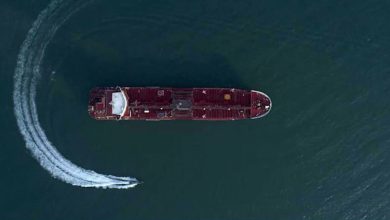Iraq pounds ISIL hideouts with fighter jets

Iraqi sources on Monday reported that the hideouts of the ISIL terrorist group between the provinces of Saladin and Kirkuk with F-16 fighter jets.
As a result of the airstrikes, a number of terrorists were killed, and their hideouts and ammunition were destroyed.
Meanwhile, local sources reported that two Iraqi army senior officers were injured following a bomb explosion during an anti-ISIL operation in Diyala.
ISIL, which attacked Iraq on June 7, 2014, and managed to capture about 45% of the country’s territory for a short period of time, was defeated in November 2017; However, since then, the remanent members of the terrorist group are present and operating in Iraq and Syria and carry out terrorist attacks from time to time.
Iraqi security forces keep searching, clearing, and chasing ISIL across the country to make sure that ISIL and its fugitive elements do not re-emerge.







